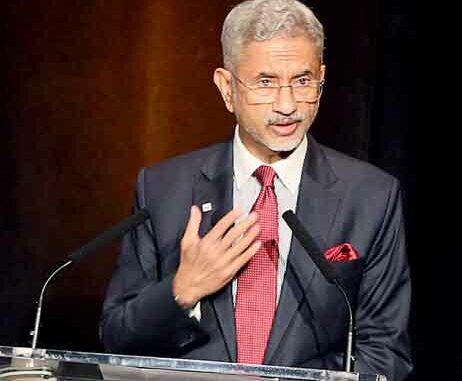
NEW YORK (TIP): Asia Society, on Tuesday, September 24, hosted Dr. Subrahmanyam Jaishankar, External Foreign Affairs Minister of India, for an address and discussion with Daniel Russel, Vice President for International Security and Diplomacy.
“We have a difficult history with China. Despite the explicit agreements we had with China, we saw in the middle of Covid-19 that the Chinese moved a large number of forces in violation of these agreements to the LAC [Line of Actual Control]. It was likely a mishap would happen and it did. So, there was a clash and a number of troops died on either side. That, in a sense, overshadowed the relationship [for a while],” said Jaishankar.
Despite this complicated history, Jaishankar emphasized the importance of working towards improving India-China relations. “I think the India-China relationship is key to the future of Asia. In a way, you can say, if the world is to be multipolar, Asia has to be multipolar,” Jaishankar remarked. He noted that bilateral ties between the two countries would “influence not just the future of Asia, but in that way, perhaps the future of the world as well.”
There is still work to be done with China regarding mitigating border tensions, said Jaishankar. “When I said 75 per cent of it has been sorted out—I was asked in a way to quantify—it’s only of the disengagement. So that’s one part of the problem. The main issue right now is the patrolling. You know, how do we, both of us, patrol up to the Line of Actual Control….Some of the patrolling issues need to be resolved, but once we deal with the disengagement, there is the larger issue, which both of us have brought very large number of troops up to the border. This is what we call the de-escalation issue.”
Jaishankar doesn’t want the pursuit of relations with China to impact relations with the United States, a key ally and fellow member of the Quad: “we chew gum and walk at the same time.”
He lauded the Quad for working as a “non-treaty” way to bring together countries that are market economies, democracies, maritime powers, and have a common interest in a free and open Indo-Pacific. “I think this is the future,” Jaishankar said.
(Based on a press release by Asia Society)


Be the first to comment